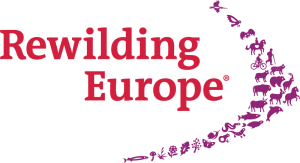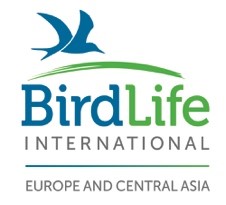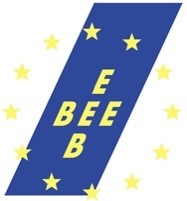On 23 March 2017, a coalition of five organisations kicked off a new initiative to promote and strengthen the EU ecological restoration agenda. By signing a Memorandum of Understanding, Rewilding Europe, BirdLife Europe and Central Asia, WWF European Policy Office, the European Environmental Bureau and the German Institute for Integrative Biodiversity Research (iDiv), launched this 3-year initiative, funded by WWF Netherlands.

The overall aim of the project is to strengthen the EU restoration agenda and ensure that specific actions are taken to create a coherent ecological network in Europe, by promoting and using rewilding principles.
Habitat loss is a major barrier to biodiversity conservation in the EU and achieving the goals of the Birds and Habitats Directives and the Water Framework Directive. Ecosystem restoration and connectivity – by restoring and maintaining large and inter-connected areas of high quality habitat such as wetlands and floodplains – is therefore of utmost importance for the conservation of nature in Europe in the years to come.
Implementing both the Habitats Directive and the Birds Directive, and achieving a good ecological status of waters under the Water Framework Directive, will require large-scale ecological restoration in the EU. However, progress so far has been disappointing: none of the 28 EU Member States has an adequate plan to restore 15% of their degraded ecosystems, in spite of their commitment under the EU Biodiversity Strategy to develop such plans.

In this project, “rewilding” is presented as a multifaceted concept with three broad dimensions that interact with each other: 1) restoring and giving space to natural processes, 2) reconnecting wild(er) nature with the modern economy, and 3) responding to and shaping of cosmopolitan perceptions of nature conservation among European society. There are a number of guiding principles that increasingly characterise rewilding as a distinct approach to conservation.
— Frans Schepers, Managing Director of Rewilding Europe explains: “It is important that rewilding becomes recognized as a mainstream conservation approach in Europe. As it prioritises functional dynamics and processes, it is the only approach that can ensure effective ecosystem restoration”.
Rewilding can represent a more cost-efficient approach to ecosystem restoration. The goal is to restore dynamic and self-sustaining ecosystems and, where appropriate, stimulate new enterprise and economic activity. This opens up the prospect of significantly reducing recurrent management costs, and the opportunity to raise new investment and income streams, thus creating new incentives for stakeholders and local communities to value their natural capital and to support conservation.
The project aims to demonstrate that rewilding principles provide a good solution to support a coherent and functional ecological network in Europe, thereby strengthening the EU restoration agenda. By showing that rewilding principles are an efficient means to provide solutions for restoring Europe’s nature, we will promote the acceptance of rewilding principles in the political debate and strive to see their inclusion in the follow-up of the 2020 EU Biodiversity Strategy.
Expected outputs
The project will support wider policy work relating to TEN-G that seeks to a) make the policy case for EU investment in large-scale ecological restoration, b) create the governance and financial framework for making such investments (e.g. so that restoration initiatives can bid for funds) and c) develop advice on priority areas and regions for such investments.
A number of academic publications on subjects underpinning the objectives of the project will be prepared and submitted, and their relevance for EU policy context will be elaborated in a number of policy briefs. These will provide the building blocks for designing a map with priority areas for restoration in the EU, and more specific the role of rewilding in the EU’s restoration agenda, thereby contributing to the establishment of TEN-G. Advocacy work, workshops and meetings will be held to engage with relevant bodies and institutions, including the European Commission.
Partners in the project
The project will be implemented by a unique coalition of five different organisations, all bringing necessary expertise to the table, covering policy, scientific and practical experience.




